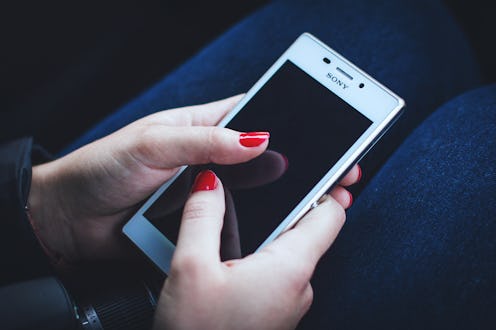
On Tuesday, Facebook made an important move in support of people who might be experiencing suicidal thoughts or self-injury: Facebook suicide prevention tools have been rolled out globally, The tools, created in collaboration with Forefront, Lifeline, and Save.org, are striving to turn social media networks into support networks. According to an April 2016 report from the National Center for Health Statist, the national suicide rate for Americans rose 24 percent between 1999 and 2014; now, in 2016, it's at a 30-year high. With over 70 percent of Americans currently active on Facebook, according to the Pew Research Center, these new tools could potentially save thousands of lives.
Most of us have experienced coming across a concerning status, one that makes you wonder, "Should I reach out?" But there's that disconnect, right? The screen between you and someone else can make things seem removed, and to make the leap from inwardly concerned to actually composing and sending a message is a big one. In an attempt to combat these conflicting thoughts, Facebook has created a reporting feature that allows users to anonymously ping a friend who seems in need of help based on a specific post. The post is then sent to Facebook's global community operations team, comprised of hundreds of people from around the world who monitor flagged posts 24/7. Facebook will then reach out to your friend, providing a host of resources proven to aid people dealing with self-injurious thoughts. While these tools have previously been available in the United States, the UK, New Zealand, and Australia, as of today, they are available for all users across the globe.
Worth noting, though, is this: Multiple studies have shown a correlation between increased social media use and higher rates of depression. Ask almost any Millennial, and they can tell you why.
On the one hand, social media presents an opportunity for pure, unedited self-representation — something which can be especially important for minorities and groups of people who are under-represented or negatively represented (usually a combination of both) by the mainstream media. It's empowering.
However, the flip side of that equation is that social media tends to be a "best of" slideshow — a curated view of the best aspects of someone's life. It's easy to lose sight of that fact, which can lead you to believe that you are the only one who is struggling; everyone else, it appears, is busy eating ice cream in the park with some puppy they found. Even though social media only shows us a tiny window of everyone's lives — and one that's usually extremely calculated, at that — it can still negatively impact your self-esteem.
So it's interesting, then, that these tools are now appearing on the kinds of sites that can contribute to these sorts of feelings. And at the same time, we're using social media to accomplish more and more things all the time; in fact, a recent study from the Pew Research Center showed that most Americans get their news from social media these days. When we spend so much of our time online, especially on social media, tools like Facebook's might be quite valuable indeed. Check out how to use them here.
Images: freestocks.org/Pexels; Giphy